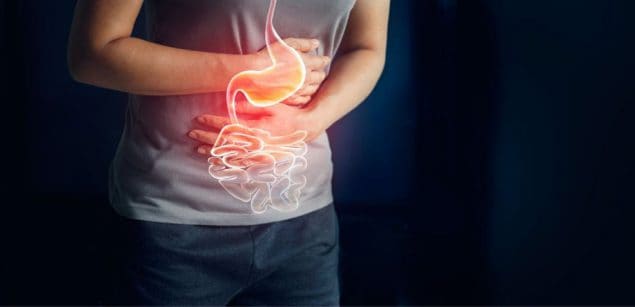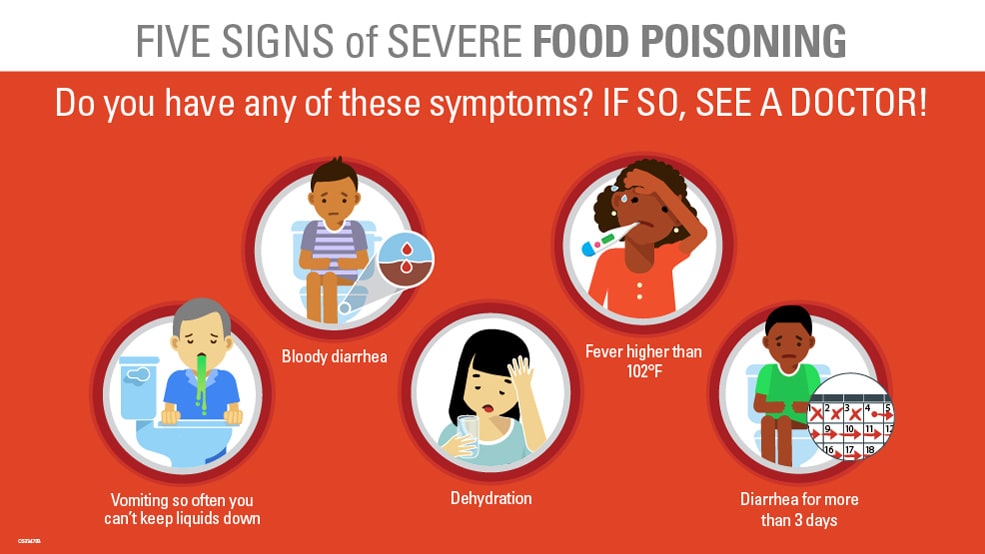Food Poisoning Symptoms

You can get sick with food poisoning after swallowing certain germs, like Salmonella or E. coli. Your symptoms may vary, depending on the germ you swallowed. Symptoms can range from mild to serious and can last for a few hours or several days.
The most common symptoms of food poisoning are:
- Diarrhea
- Stomach pain or cramps
- Nausea
- Vomiting
- Fever
If you have diarrhea or vomiting, be sure to drink plenty of fluids to prevent dehydration (not having enough water in your body).
Should I See a Doctor for Food Poisoning?
See a doctor if you have any symptoms that are severe, including:
- Bloody diarrhea
- Diarrhea that lasts more than 3 days
- High fever (temperature over 102°F)
- Vomiting so often that you cannot keep liquids down
- Signs of dehydration, which include not urinating (peeing) much, a dry mouth and throat, feeling dizzy when standing up
See your doctor if you are pregnant and have a fever and other flu-like symptoms. Some mild infections can cause problems with pregnancy.
Serious Health Problems and Long-Term Effects From Food Poisoning
Most people have mild illnesses, but some infections spread by food are serious or even life-threatening. Some people may need to be hospitalized, and some illnesses lead to other health problems, including:
- Meningitis
- Kidney damage
- Hemolytic uremic syndrome (HUS), which can cause kidney failure
- Arthritis
- Brain and nerve damage
For some people, these health problems can last for weeks or months after recovering from the foodborne illness. For others, they never go away.
How Soon Do Symptoms Start?

If you think you or someone you know got sick from food, please report it to your local health department. Report it even if you don’t know what food made you sick. Reporting an illness can help public health officials identify a foodborne disease outbreak and keep others from getting sick.
